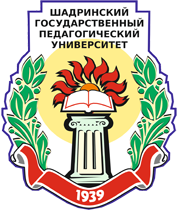К вопросу о диалектической связи формирования универсальных учебных действий и предметных умений обучающихся (на примере организации работы с математическим материалом профильного уровня)
To the issue of the dialectical connection of the formation of universal educational actions and students` subject skills (on the example of the organization of work with mathemati-cal material of a profile level)
Аннотация
С позиции значимости формирования универсальных учебных действий посредством материала содержательных линий (их фрагментов), а также основных дидактических единиц школьного курса математики в статье определяется и описывается процедура «обратимости» деятельности обучающихся в цепочке «предметный материал» – «универсальные учебные действия». В качестве средства реализации «обратимости» предлагаются учебные задания, познавательные задания и учебно-познавательные задания к предметным задачам. Методология обратимости иллюстрируется для конкретных познавательных универсальных учебных действий (поиск и выделение необходимой информации, самостоятельное выделение познавательной цели, структурирование знаний, выбор способов решения задач в зависимости от конкретных условий, рефлексия способов и условий действия, контроль процесса деятельности, анализ, сравнение, классификация, установление причинно-следственных связей, создание алгоритмов) на конкретном математическом содержании – задачах на построение сечений.
Abstract: From the position of the importance of the formation of universal educational actions through the material of meaningful lines (their fragments), as well as the basic didactic units of the school mathematics course, the article defines and describes the procedure for the «reversibility» of students' activities in the chain «subject material» – «universal educational actions». Educational tasks, cognitive tasks, and educational-cognitive tasks for subject tasks are offered as a means of realizing «reversibility». The reversibility methodology is illustrated for specific cognitive universal educational actions (search and selection of necessary information, independent selection of a cognitive goal, structuring of knowledge, choice of methods for solving problems depending on specific conditions, reflection of methods and conditions of action, monitoring of the activity process, analysis, comparison, classification, the establishment of causal relationships, the creation of algorithms) on a specific mathematical content – tasks for the construction of sections.






